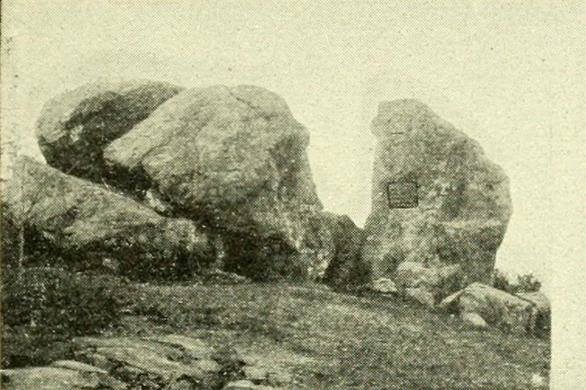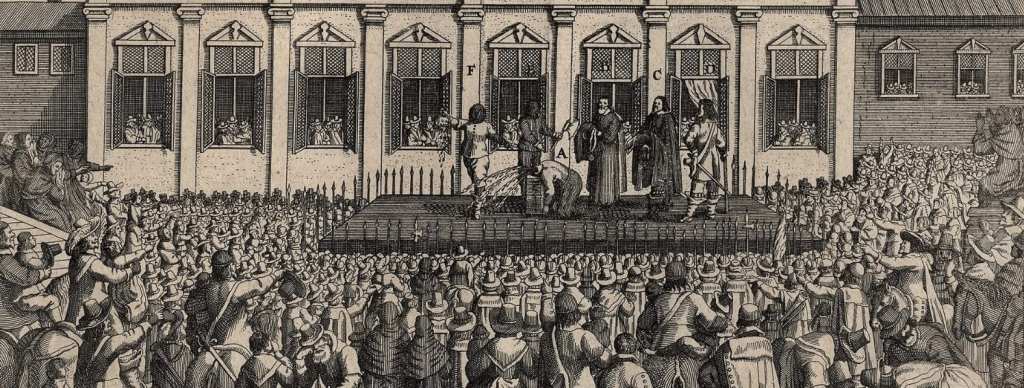In 1649, 59 British judges sentenced King Charles I to death, dissolving the monarchy and placing Oliver Cromwell in power. When King Charles II was restored to the throne, he was determined to exact revenge on the men who, in essence, murdered his father. Each of the 59 judges was to be captured, hanged, drawn, and quartered. Which seems like overkill to me, but that was they way Charles II rolled.

Photo Credit: Wikipedia
Three of those judges – Edward Whalley, William Goffe, and John Dixwell, fled to America to avoid their grisly fate.
One would think that the three would find sanctuary across the pond, but remember this was long before unrest and talk of revolution swept through America. Dixwell found himself relatively safe in New Haven, Connecticut, and after warrants were issued for the trio’s arrest, Whalley and Goffe left Boston to join him.

Photo Credit: Facebook, A History of British America
Dixwell had assimilated and felt safe, and Whalley and Goffe found support at first, too. The local Puritans appreciated their stand against tyranny and hid them and fed them. Soon, however, the danger grew, and the two hid in the woods of what is now West Rock Ridge State Park.

Photo Credit: Wikipedia
They used a large rock containing cracks as a cave, hiding there for an unknown amount of time and surviving on food brought to them by sympathetic locals. They left after a mountain lion gave them a fright, and they managed to live the rest of their lives in relative peace in Hadley, Massachusetts.

Photo Credit: Facebook, Jean Kenny
Today, you can visit the mini cave, now called “Judges Cave,” on a path called “Regicides’ Trail.” On the western side of the cave is a plaque that reads: “Here May Fifteenth 1661 and for some weeks thereafter Edward Whalley and his son-in-law William Goffe, members of the Parliament-General, officers in the army of the Commonwealth and signers of the death warrant of King Charles First, found shelter and concealment from the officers of the Crown after the Restoration. ‘Opposition to tyrants is obedience to God,’ 1896.”

Photo Credit: Wikipedia
There are three streets in New Haven named after the three famous fugitives, as well.
As you can see, revolution lived in the blood of Americans long before any declaration made it official.
h/t: Atlas Obscura
Check these out before you go!
https://didyouknowfacts.com/possessed-nun-wrote-cryptic-letter-devil-17th-century-just-decoded/
https://didyouknowfacts.com/assassins-end-largely-forgotten-site-john-wilkes-booth-finally-got-coming/






